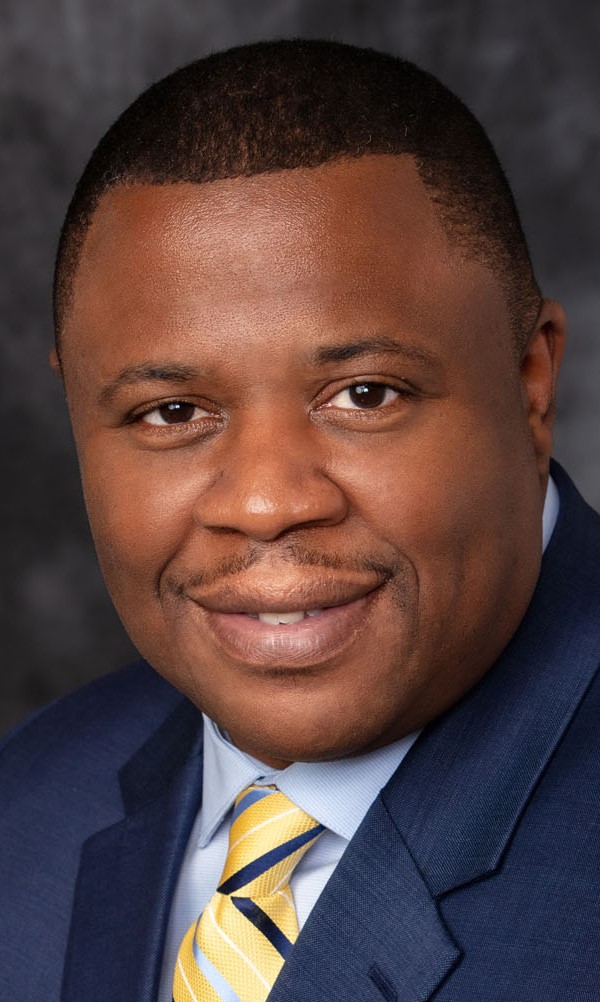
Against the Grain II
Blacks seem to fare much better in outer space

If you look at how Blacks have been portrayed over the years, by far the imagery of us in space far exceeds those of us here on earth. From the “shucking and jiving” parts Blacks were given in the beginning of the television and film era to the movies where no matter how many folks were on screen, the Blacks were the first to get killed, Blacks have struggled with the imagery Hollywood and New York chose to foster.
From the famous days of Stepin Fetchit in the 1930s and 1940s, Blacks were portrayed in derogatory roles. The sole emphasis on buffoonery was the only roles available to Blacks.
By the 1950s, Blacks had begun to star in Broadway musicals in roles that exuded positivity. In 1953, Harry Belafonte and Dorothy Dandridge put pride into Blacks with the movie “Bright Road.” A few more choice opportunities were available for Blacks, but for the most part, roles were still subservient in nature.
In 1966, Gene Roddenberry created a series that would forever change the perception of not only Blacks, but Black women as well. The Star Trek science fiction pilot debuted to less-than-stellar reviews. After a switch of leading roles the series would set trends for three seasons. Adding William Shatner in the lead role of Captain Kirk saved the series and placed it squarely as one of the most influential series in history.
While Kirk was the lead and first officer, Mr. Spock (Leonard Nimoy) was the centerpiece of the series. And, plenty of room was left for Nichelle Nichols to shine. She played the role of Lt. Uhura, a part of the U.S.S. Enterprise’s leadership team and the ship’s communications officer.
Uhura played the groundbreaking role of a Black woman in space, contributing to the success of the starship and being relied upon daily by the crew. She did it with style, beauty and strength. Additionally, on the show, one of the most important moments in television history would involve her character.
While Blacks admired Nichols on the screen, the conditions were still taxing on her and it became known that she intended to leave the show after the first season. While her image was highlighted on the screen, she faced adversity off the screen. She had found out that her fan mail had been withheld from her and writers were chopping her lines. Feeling unwanted, she made it public that she was done with the show after the first season.
By chance, she met Martin Luther King Jr. and he changed the whole perception. He told Nichols that she couldn’t leave the show and that he and his family watched her all the time. He told her that her character as a positive role model for not only Blacks, but women, was too important to concede. With his encouragement she stayed.
In 1977, George Lucas would develop what would become one of the biggest franchises in the world, Star Wars. While much attention was paid to a charming Luke Skywalker (Mark Hamil), Princess Leia (Carrie Fisher) and Han Solo (Harrison Ford), the story of Star Wars is centered around the villain, Darth Vader. Darth Vader was voiced by James Earl Jones. The famous breathing and commanding bellow of his voice made for the perfect science fiction character. Jones’ voice has been lent to many causes, but that of Darth Vader was by far his most influential.
Even in what is now the juggernaut of science fiction and action movies, the Marvel Cinematic Universe (MCU), Blacks have had very positive and leading roles. Black Panther, which is the highest grossing single character movie and second-highest grossing movie of all phases of the MCU, was based in Africa. It captured the imagination of the world. In fact, the movie was so powerful that countries that had banned American movies for decades, temporarily dropped the ban to allow Black Panther to appear.
With all the slave movies, oppression movies and movies that show Blacks in less-than-favorable lights, we seem to do alright in outer space.
And as for the historic moment involving Nichols on Star Trek, it was an interracial kiss. Known to “woo” women from all planets, galaxies and star systems, Shattner would make the historic kiss in an episode entitled “Plato’s Stepchildren” that was broadcast on television on Nov. 22, 1968.
In remembrance of the 58th Anniversary of Dr. Martin Luther King’s “March on Washington,” Americans marched in Atlanta, Washington, D.C., Miami, Phoenix, Houston, Tallahassee and other areas last Saturday to demand an end to voter disenfranchisement laws sweeping the nation. The participants emphasized the urgency for Congress to pass the “John Lewis Voting Rights Bill.”







